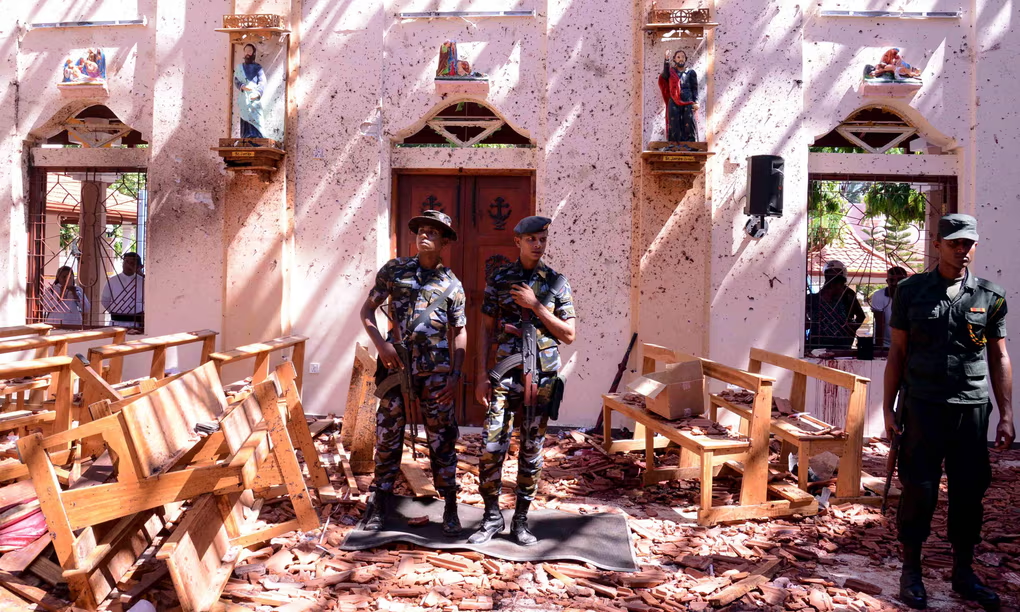Image: Sri Lankan soldiers in St Sebastian’s church in Negombo, after the bomb blast on Easter Sunday, 2019. Photograph: AFP/Getty Images
This chilling Dispatches documentary reports on the aftermath of 2019’s apparently random terrorist attack and alleges unpalatable truths
Sri Lanka’s Easter Bombings, a new Dispatches investigation, makes serious new allegations about the attacks, based on whistleblower testimony. While the accusations are startling, they are straightforward: the charge is that allies of the Rajapaksas had associations with the NTJ, and that they made it hard for law enforcement to arrest its leaders prior to the bombings or to fully investigate the massacre afterwards.
We start in 1983, when an armed uprising by Tamil separatists sparked civil war, before spooling forward to the end of that conflict in 2009. Actions taken then by the Sri Lankan army, under the presidency of Mahinda Rajapaksa, have since been widely described as war crimes, not least by the 2011 Channel 4 documentary Sri Lanka’s Killing Fields – a film furiously criticised by Sri Lankan authorities.
Rajapaksa and his younger brother Gotabaya, appointed by the president as defence secretary, had already built a reputation as leaders to be feared. Numerous political opponents were threatened or attacked. The film recalls the chilling murder in 2009 of journalist Lasantha Wickrematunge, the government’s most prominent critic, who predicted his own demise and left behind an editorial to be published after his death: “Murder,” he wrote, “has become the primary tool whereby the state seeks to control the organs of liberty.” Such violent retribution was, the Dispatches contributors say, believed to be carried out by a clandestine death squad called the Tripoli Platoon.
In 2015, the Rajapaksas, who had flooded government posts with extended family and were beset by allegations of corruption, were voted out. Senior police officer Nishantha Silva then investigated the Wickrematunge murder, finding phone record evidence putting Tripoli Platoon members at the scene. Making his first public statements in this programme, Silva claims that, despite no longer running the country, the Rajapaksas still had enough friends in powerful positions to ensure the case stalled in the Sri Lankan courts.
We are told that information from Indian intelligence sources, warning of an attack by the NTJ on Catholic churches, was not acted upon. Efforts by the police to arrest NTJ followers were, according to documents obtained by Dispatches and testimony from a further, anonymous whistleblower, derailed by briefings from military intelligence filled with baseless accusations against other groups.
In this thicket of secrets and lies, the film takes time to hear from the victims, interviewing two survivors of the Easter 2019 attack on St Sebastian’s church in Negombo. Their memories of seeing loved ones die – 115 perished at St Sebastian’s, including 27 children – form a lurching contrast to the smiling face of Gotabaya Rajapaksa, elected as president in November 2019 on a wave of fierce, fearful nationalism. The new ruler appointed Suresh Sallay as his new intelligence boss – Dispatches’ anonymous whistleblower claims to have evidence of Sallay then obstructing the investigation into the bombings. Sallay, who denies everything and is now pursuing defamation claims in the Sri Lankan courts, is still the director-general of the State Intelligence Service today.
Courtesy The Guardian
